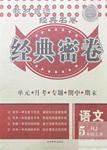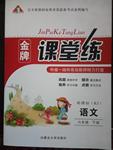题目内容
The customs in different countries are rather different. If I have dinner with a Chinese host, he always puts more food onto my plate as soon as I have emptied it. That often discomforts me greatly. I have to eat the food even if I do not want to, because it is considered bad manners in the west to leave one’s food on the plate. I have also noticed that when a Chinese sits at an American’s dinner party, he often refuses the offer of drink though he’s in fact still hungry or thirsty. This might be good manners in China but it is not in the west at all. In the United States, it is impolite to keep asking someone again and again or insist on his accepting something. Americans have a direct way of speaking. If they want something, they will ask for it. If not, they will say, “No, thanks.” When an American is served with beer by the host, for example, he might say, “No, thanks. I’ll take some orange juice if you have it.” That is what an American will do. So when you go to the United States, you’d better remember the famous saying: “when in Rome, do as the Romans do.”
1.From this passage we can see that the writer is .
|
A.a Chinese |
B.a Roman |
|
C.an American |
D.a European |
2.When a Chinese host kept putting more food onto his plate, the writer felt .
|
A.very happy |
B.sad |
C.angry |
D.uneasy |
3.In the west, people consider it bad manners .
|
A.to refuse an offer |
|
B.to ask for something directly |
|
C.to eat at a dinner party |
|
D.to keep asking someone to accept something |
4.A guest at an American’s dinner party should show his politeness by .
|
A.putting more food onto his plate as soon as he emptied it |
|
B.refusing the offer of food or drink though he is still hungry or thirsty. |
|
C.asking for things directly if he wants them |
|
D.not eating all the food offered |
1.C
2.D
3.D
4.C
【解析】
1.推理判断题。结合In the United States, it is impolite to keep asking someone again and again or insist on his accepting something可知答案。
2.细节理解题。结合he always puts more food onto my plate as soon as I have emptied it. That often discomforts me greatly可知答案。
3.细节理解题。结合In the United States, it is impolite to keep asking someone again and again or insist on his accepting something可知答案。
4.细节理解题。结合If they want something, they will ask for it可知答案。

 同步学典一课多练系列答案
同步学典一课多练系列答案 经典密卷系列答案
经典密卷系列答案 金牌课堂练系列答案
金牌课堂练系列答案 三新快车金牌周周练系列答案
三新快车金牌周周练系列答案102. In the minority nationality the custom doesn’t ____ and has come down from generation to generation.
|
A.die away |
B.die of |
C.die from |
D.die out |